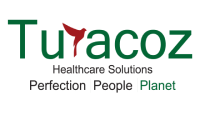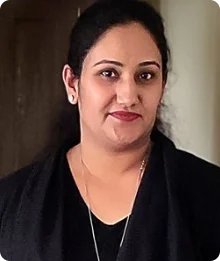In healthcare and medicine, the precision and clarity of information can significantly impact patient outcomes and public health. This is where medical writing, a specialized form of science communication, plays a crucial role. Effective medical writing serves as the bridge between complex medical science and its comprehension by various audiences, including healthcare professionals, regulatory authorities, and the general public. This blog delves into the essence of effective medical writing, its importance, and how organizations like Turacoz Healthcare Solutions are pioneering in enhancing these skills through comprehensive educational programs.
Understanding Medical Writing
Medical writing encompasses the creation and production of scientific documents that communicate clinical and health-related information clearly and understandably. It ranges from regulatory and research-related documents to educational materials for healthcare professionals, patients, and the public. A proficient medical writing service facilitates the accurate dissemination of medical science, ensuring that all stakeholders have access to reliable and understandable medical information.
Role of Medical Writers in the Healthcare Industry
Medical writers are invaluable in translating scientific research into clear, accurate, and accessible information. They contribute significantly to advancing medical knowledge, supporting healthcare decision-making, and promoting public health awareness. As the demand for skilled medical writers grows, so does the need for specialized training and education in this field.
The landscape of medical writing is undergoing transformation, influenced by digital advancements, artificial intelligence, patient-centric communication, multimedia content, and global collaboration. Medical writers are embracing to new technologies and communication strategies, ensuring that medical writing remains a key player in advancing global healthcare.
Read More:- AI-Powered Literature Search: Enhancing Medical Research
The Foundation of Effective Medical Writing
Several key features characterize effective medical writing:
- Precision: Effective medical writing demands the precise use of medical terminology, numerical data, and clinical findings.
- Clarity: Complex medical concepts are presented in a way that is accessible to the intended audience.
- Accuracy: All information is factual, up-to-date, and well-researched, reflecting the latest advancements and guidelines in medicine.
- Relevance: The content is tailored to address the specific needs and knowledge level of its audience.
- Consistency: There is a uniform style and format that aids in the document’s readability and comprehension.
- Objectivity: Information is presented in an unbiased manner, focusing on evidence-based data.
Why is Effective Medical Writing Important?
The significance of effective medical writing cannot be overstated:
- Enhancing Patient Care: Clear communication helps patients understand their conditions and treatment options better, leading to improved healthcare outcomes. When patients are well-informed, they are more likely to actively participate in their healthcare decisions, adhere to prescribed treatments, and adopt healthier lifestyles. This, in turn, contributes to improved healthcare outcomes, increased patient satisfaction, and the establishment of a strong patient-provider relationship.
- Regulatory Approval: Precise and well-structured documentation is crucial for the regulatory approval process of new drugs and medical devices. Regulatory bodies demand meticulous attention to detail, accurate representation of clinical trial results, and adherence to specific formats.
- Educational Value: Medical writing supports the continuous education of healthcare professionals, contributing significantly to their professional development. This educational aspect of medical writing not only supports the growth of individual practitioners but also fosters a culture of knowledge-sharing within the broader healthcare community.
- Public Health: The impact of medical writing extends beyond individual patient care to encompass broader public health initiatives. Effective communication of health risks and preventive measures can significantly impact public health initiatives. By clearly conveying information about infectious diseases, vaccination campaigns, and lifestyle interventions, medical writing contributes directly to the success of public health initiatives and the overall well-being of communities.
Challenges in Medical Writing
Despite its importance, medical writing presents challenges such as:
Keeping Abreast of Scientific Advancements: Medical writing operates at the intersection of rapidly evolving scientific knowledge and the need to communicate this information effectively. Staying current with perpetual advancements in medical research, technologies, treatment modalities, ongoing clinical trials, and breakthroughs requires a continuous commitment to learning and updating one’s knowledge base.
Regulatory Compliance: Navigating the intricate web of regulatory requirements is a persistent challenge in medical writing. Different regions and governing bodies have specific guidelines for the preparation of regulatory documents, clinical trial reports, and drug submissions. Meeting these standards demands meticulous attention to detail and a deep understanding of regulatory nuances. Non-compliance can lead to delays in approvals, legal repercussions, and potential risks to patient safety.
Simplifying Complex Information Without Compromising Accuracy: Communicating complex medical information in a manner that is clear and accessible to diverse audiences, including patients and non-specialist stakeholders, is a delicate balancing act. Striking this balance is challenging, especially when dealing with intricate details of diseases, treatments, and pharmaceutical mechanisms.
A Professional Consultancy Helps!
Role of Medical Communication Agencies: In addressing these challenges, medical communication agencies emerge as essential players in the realm of medical writing. Their teams often consist of experienced medical writers, researchers, and subject matter experts who are adept at distilling complex medical information into clear and compelling narratives that meet the highest standards of quality, accuracy, and compliance.
Specialized Medical Writing Services: Medical communication agencies offer a spectrum of specialized services, including the development of regulatory documents, clinical trial protocols, scientific manuscripts, and patient education materials. Their expertise extends to various therapeutic areas, ensuring that the writing aligns with the specific requirements of diverse medical disciplines.
Quality and Accuracy Assurance: The paramount focus of medical communication agencies is on maintaining the highest standards of quality and accuracy. Rigorous quality assurance processes, peer reviews, and adherence to industry best practices are integral components of their service offerings. This commitment to excellence ensures that the medical writing produced by these agencies not only meets regulatory requirements but also surpasses expectations in terms of clarity, precision, and relevance.
Tips for Effective Medical Writing
To achieve effective medical writing, consider the following tips:
- Know Your Audience: Tailor the content to the audience’s knowledge level and needs.
- Continuous Learning: Stay updated with the latest in medical research and regulatory guidelines.
- Peer Review: Utilize feedback from peers to refine and improve the content.
- Ethical Considerations: Ensure all writing adheres to ethical standards, including patient confidentiality and conflict of interest disclosures.
Medical writers are invaluable in translating scientific research into clear, accurate, and accessible information. They contribute significantly to advancing medical knowledge, supporting healthcare decision-making, and promoting public health awareness. As the demand for skilled medical writers grows, so does the need for specialized training and education in this field.
Comprehensive Certificate Course in Medical Writing
Recognizing the critical need for skilled medical writers, Turacoz Healthcare Solutions offers a Comprehensive Certificate Course in Medical Writing. This program is designed to equip participants with the knowledge and skills required to produce high-quality medical documents across various formats. The course covers the fundamentals of effective medical writing, including ethical considerations, regulatory requirements, and the latest trends in medical research and publications. Participants will learn from experienced professionals in the field, gaining hands-on experience that prepares them for a successful career in medical writing and science communication.
Effective medical writing is crucial for the dissemination of medical knowledge and the advancement of healthcare. It requires a unique blend of scientific understanding, writing proficiency, and ethical consideration. With the increasing complexity of medical science and the need for clear communication, the demand for skilled medical writers has never been higher.
Turacoz Healthcare Solutions’ Comprehensive Certificate Course in Medical Writing represents an excellent opportunity for aspiring medical writers to develop their skills and contribute to the field of medicine and public health.
By fostering a new generation of medical writers, we can ensure that medical science continues to be communicated with clarity, accuracy, and integrity, ultimately contributing to better healthcare outcomes and informed public health decisions.
Register here: https://forms.office.com/r/uieHuZu52q
For more info contact us at trainings@turacoz.com






























